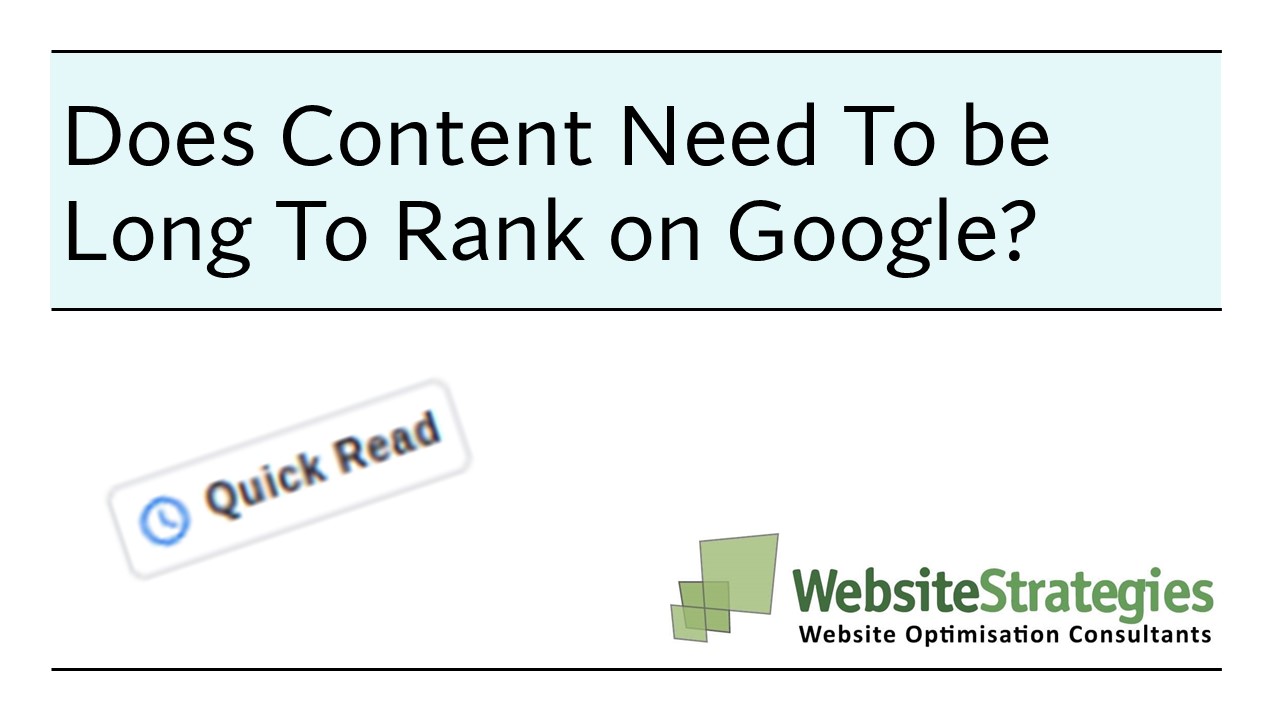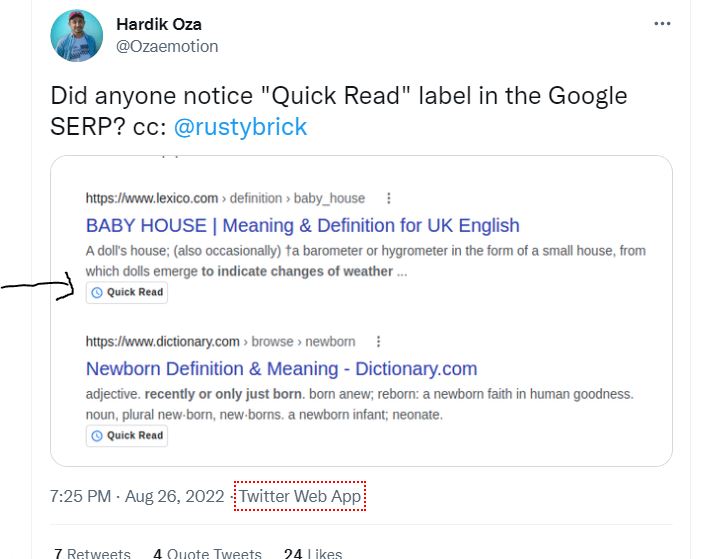Does Content Need To be Long To Rank on Google?

Published On Aug 29,2022
It has long been held that in order to rank well on Google, content, such as blog posts, need to be long in terms of word count. Google has contended that this is not the case and today there is evidence to prove it as Google tests a “Quick Read” function in the search results. While I can’t reproduce it here in Australia, Hardik Oz (@Ozaemotion) has identified it on Twitter:

What this means is that shorter content is valuable and this perhaps ties in with Google “Useful Content Update“. Can you see these labels in the Australian search results?
More information on long content or not
Does content need to be long in order to rank on Google? This is a common question among content creators and website owners. The short answer is no, but the long answer is more nuanced. In this article, we will explore the pros and cons of long-form content, as well as the factors that determine a page’s ranking on Google.
What is Long-Form Content?
Long-form content is generally defined as content that exceeds 1,500 words, although some consider 2,000 words to be the minimum length. This type of content is often used to provide in-depth information on a topic and is commonly found in blog posts, white papers, and eBooks.
Pros of Long-Form Content
-
Provides in-depth information: Long-form content allows writers to provide detailed information on a topic. This can help establish the author as an expert in the field and build trust with the audience.
-
Increases Dwell Time: Dwell time is the amount of time a user spends on a page before returning to the search results. Long-form content tends to have a longer dwell time because users are engaged in reading the content.
-
More Backlinks: Long-form content is more likely to be linked to by other websites because it provides valuable information. Backlinks are an important factor in Google’s ranking algorithm, so more backlinks can help boost a page’s ranking.
Cons of Long-Form Content
-
Time-consuming: Writing long-form content takes time and effort. It can be difficult to create high-quality content that is also lengthy.
-
May not be necessary: In some cases, providing in-depth information may not be necessary or may not be what the user is looking for. In these cases, shorter content may be more effective.
-
Can be overwhelming: Long-form content can be overwhelming for some readers, especially those who are looking for quick answers. It can be difficult to read lengthy content on a small screen or in a busy environment.
Factors that Determine a Page’s Ranking on Google
-
Relevance: Google’s algorithm determines how relevant a page is to a user’s search query. This means that the content on the page should be directly related to the user’s search terms.
-
Authority: Authority refers to how trustworthy and authoritative a website is. Google considers factors such as the number and quality of backlinks, social signals, and domain age when determining a website’s authority.
-
User Experience: User experience refers to how easy it is for users to navigate and interact with a website. Google considers factors such as page load speed, mobile responsiveness, and usability when determining a page’s user experience.
So, content does not need to be long to rank on Google. While long-form content has its benefits, it is not always necessary or appropriate for every situation. Instead, focusing on providing relevant, high-quality content that is easy to read and navigate can help improve a page’s ranking on Google.
Sources:
- Moz. (2021). Long-form Content vs Short-form Content: Which is Best for SEO? https://moz.com/learn/seo/long-form-short-form-content
- Backlinko. (2021). Google’s 200 Ranking Factors: The Complete List. https://backlinko.com/google-ranking-factors
- Neil Patel. (2021). How to Write Long-Form Content That Ranks. https://neilpatel.com/blog/how-to-write-long-form-content/
- How to Optimize Product Images for Google Search Results [VIDEO]
- Preventing Keyword Cannibalisation: Best Practices for SEO Success
- How to Remove Yourself as a Manager of Someone Else’s Google Business Profile [VIDEO]
- [SEO Course] Introduction to Visitor Metrics and SEO
- [SEO Course] Why Monitoring Your Competitors is a Key SEO Strategy
